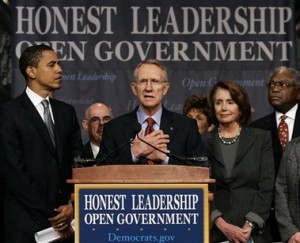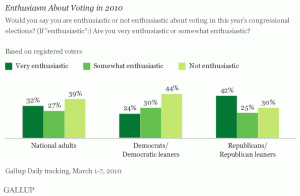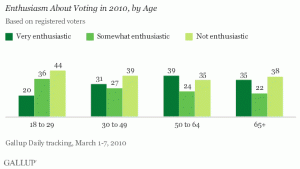
The FDIC's New Policy of Soliciting State Pension Plans to Pour Hard Cash into Purchases of Failed Bank Assets Takes Shape
The Federal Deposit Insurance Company (“FDIC”) has recently initiated a risky new policy: soliciting and facilitating public pension fund purchases of failed bank assets that are presently on the FDIC’s balance sheet after seizure. Apparently, the FDIC’s fund is deep into the red (over $20 billion), and a decision has been made to tap the two trillion dollars in public pension funds around America to take “toxic assets” off the FDIC books and replenish the FDIC’s fund, thereby relieving the pressure on the FDIC . Bloomberg reports:
March 8 (Bloomberg) — The Federal Deposit Insurance Corp. is trying to encourage public retirement funds that control more than $2 trillion to buy all or part of failed lenders, taking a more direct role in propping up the banking system, said people briefed on the matter.
Direct investments may allow funds such as those in Oregon, New Jersey and California to cut fees for private-equity managers, and the agency to get better prices for distressed assets, the people said. They declined to be identified because talks with regulators are confidential.
Pension funds, of course, are designed to provide funds for workers as they retire and such funds are capitalized by withholding from worker paychecks, and in the case of public pension funds, from government worker paychecks. The first state pension fund to actually pour money into FDIC-held failed bank assets pursuant to the FDIC’s solicitations could be the State of Oregon, ponying up $100 million in perhaps the first deal of many to come. Jay Fewel, a senior investment officer at the Oregon State Treasury, confirmed that bank regulators are looking for “the support of state pension funds to solve the crisis surrounding ongoing bank failures”. The Oregonian explains the familiar “get rich quick” sales pitch being served up by the FDIC and investment bankers looking to leverage state pension fund money:
In a deal being pitched as a home-run investment opportunity for the state pension fund, Oregon’s public pensioners may be about to buy stakes in several of the 700 troubled banks around the country that are wallowing in bad loans.
…
The citizen’s council that oversees the Oregon Public Employees Retirement Fund gave its approval last week — subject to final fee negotiations — to invest $100 million in a bank holding company being organized by Sageview Capital, whose partners bring deep experience in the world of leveraged buyouts.
…
According to a presentation to the Oregon Investment Council by Harrison and Sageview partner Scott Stuart, the FDIC is so anxious to recapitalize troubled banks that it is willing to cover 80 to 95 percent of buyers’ loan losses as well as the costs incurred in restructuring loans.
That’s a potentially lucrative deal for discount bidders who can clean up problem loans and get the bank into growth mode before selling it. Stuart suggested that it wasn’t unrealistic to think Oregon could double its money over several years.
“The government is handing out free money,” enthused council member Dick Solomon, a Portland accountant. “Maybe we should get in line.”
So a “desperate” FDIC is facilitating a private equity firm’s solicitation of Oregon state pension fund money to purchase failed bank assets off of the FDIC’s books. Oregon may be the first in a long line of state pension funds who jump at chance to get in on the FDIC action as the “government is handing out free money”. Such sentiments are almost certainly unrealistic, and fantasy claims that a state pension fund “could double its money over several years” could be relied upon by state pension funds, like Oregon’s, New Jersey’s and California’s, to justify pouring massive portions of the hard cash under their control into FDIC-solicited failed bank asset purchases.
Apparently the FDIC likes the idea of selling failed bank assets off to state pension funds because such government pension funds have a “longer [time] horizon” and won’t be concerned about losses in the next decade or so:
Private-equity managed funds typically promise they’ll return funds to their investors in about 10 years. Pension funds are aiming to fund retirements that are decades away and thus can hold on to investments longer, which would help ease the FDIC’s concern, said one of the people.
FDIC guarantees may soften the risk of investing public pension money in distressed banks, Whalen said. When the FDIC sells a failed bank, it typically shares a portion of the loan losses.
“Financially sophisticated people do not assume that banks have recognized all of their real estate losses,” Kramer said, adding that it can still be a bad deal if a buyer overpays for a deposit franchise or if loans perform worse than expected. “We are in the early innings for commercial real estate.”
It appears that the FDIC is trying to avoid selling to private-only funds, who are looking at a 10 year investment window, and instead sell to public pensions, which “are aiming to fund retirements that are decades away and thus can hold on to investments longer, which would help ease the FDIC’s concern”.
Reading between the lines, it appears that the FDIC knows it cannot sell certain failed bank assets to private equity funds because such private firms won’t buy at the higher prices the FDIC wants as the 10-year return on investment is unattractive to private investors. State pension funds, however, are great because they don’t care about a 10-year return; instead, they’re only worried about “decades away” valuation and accordingly can be solicited to buy some of the FDIC’s failed bank assets at higher prices than private-only funds.
This conduct by the FDIC is quite risky to the solvency of public pension funds as even the failed bank assets already marked down on the FDIC books now could fall further if the commercial real estate market deteriorates further, which some see as likely in 2010 and beyond. Indeed, the entire new policy of the FDIC to solicit government pension fund money into the risky proposition of buying up failed bank assets could be seen as attempting to tap into the “equity” of the United States (2 trillion in public pension funds) to cover bad debt that no one else will buy. Zero Hedge is also concerned about this possible new trend in FDIC solicitation of public pension money:
My thoughts on public pension funds investing in failed banks? I think any way they do it, it’s a recipe for disaster. I can just see the private equity sharks raising funds to bid on failed banks. And even if pension funds take direct control of these failed banks, do they really know what’s lurking on their books and how to operate a bank? I shudder to think at what will happen to these investments if we enter a protracted period of weakness in commercial real estate.
Another independent expert, Chris Whalen, managing director of Institutional Risk Analytics of Torrance, California, sees unnecessary risk for state pension funds in any FDIC purchase deal. Regarding failed bank assets, Whalen notes that
“If they are really interested in playing this area, they should put their money into a larger bank that’s already playing here,” Whalen said. “If you look at the risk-reward and the distraction involved, it’s not worth it” to back a new bank, he said.
Another financial expert, Richard Suttmeier, points out that a reasonable solution to the FDIC fund shortfall is to use repaid TARP funds from the big banks to replenish the fund. The problem of finding hard cash to purchase “toxic assets” that remain after a bank’s failure continues to lurk in the background as the elephant in the room. Sadly, voices of reason like Whalen’s and Suttmeier’s will probably be drowned out by exuberant claims of “free money” and “double its money” from the private hedge fund managers looking for state pension fund clients and from the FDIC in its desperation to find new sources of hard cash to take those infamous “toxic assets” off of the FDIC’s hands. One can only hope that FDIC’s momentous decision to tap the 2 trillion in state pension fund money to buy up toxic assets will garner some public attention and debate as the implications for millions of state and local workers could reverberate for years to come.
Technorati Tags: 20 billion, Balance Sheet, Bank Assets, Bank Failures, Bank Regulators, Banking System, Banks, Bloomberg Reports, Distressed Assets, FDIC, Federal Deposit Insurance, Federal Deposit Insurance Company, Federal Deposit Insurance Corp, Fund Money, Government Pension, Government Worker, Investment Officer, Investments, Lenders, Leverage State, Oregon State Treasury, Paychecks, Pension Fund, Pension Money, Playing With Fire, Private Equity Managers, Public Pension Fund, Public Pension Funds, Public Retirement, red, Regulators, Retirement Funds, Seizure, State Pension Fund, State Pension Funds, Time Horizons, toxic assets, Trillion












All Out Media Assault on Eric Massa as Beck Interview Approaches
Tuesday, March 9th, 2010
Former Democratic House Rep. Eric Massa (D-NY) Is Under All-Out Assault from the Establishment Media Today
As the hours count down until Glenn Beck uses his 3-4 million viewer platform today to amplify now-resigned Democratic House Rep. Eric Massa’s (D-NY) sensational claims that the Obama Administration and Democrats in Congress forced him out of Congress over his opposition to Obamacare, the left-leaning establishment media is engaging in all-out effort to completely destroy Eric Massa in the eyes of the public. A common beneficiary of Obama White House and Congressional Democratic leaks, the Washington Post, has just gone up with a new story alleging that Massa is under investigation for “groping” several male staffers:
CNN and MSNBC have been keeping up a steady hourly diet of attacks on Eric Massa all day long, at times asserting he is simply crazy, had “snapped” from the pressure, was “silly” or “ridiculous” or was just lying about the Obama Administration and Congressional Democratic leadership just to save his own skin. Considering Massa was fully embraced by such left-leaning media outlets in the recent past, the latest harsh, anonymously-sourced attacks are all the more jarring. The leaks from Democratic sources on the House Ethics Committee or perhaps the White House, published at 2:49PM today, up the ante somewhat as they attempt to paint Massa as a serial sexual harasser of male staffers based on anonymous sources. All told, the mainstream media appears to be reading directly from White House talking points on Massa, as repeated again by the Washington Post in today’s article:
It is unusual for specific details of Congressional ethics investigations to be leaked so widely, especially in seeming direct, immediate response to the member’s public comments, as the leaks to the Washington Post appear to be in response to Massa’s comments yesterday. Regardless, today’s interview on Glenn Beck’s show is certain to drive the news cycle this evening and perhaps into tomorrow as the Obama Administration and Congressional Democratic leadership struggle to find the votes to push Obamacare through Congress before the Easter recess.
Technorati Tags: Barack Obama, Barack Obama, Beneficiary, Campaign Office, Care Reform Legislation, Committee Investigation, Congressional Leaders, Congressional Offices, Eric Massa, Establishment Media, Glenn Beck, Health Care Reform, Inappropriate Comments, Office Staff, Physical Harassment, Salty Language, Sensational Claims, Staffers, Villified, Washington Post, York Democrat
Tags: Barack Obama, Barack Obama, Beneficiary, Campaign Office, Care Reform Legislation, Committee Investigation, Congressional Leaders, Congressional Offices, Eric Massa, Establishment Media, Glenn Beck, Health Care Reform, Inappropriate Comments, Office Staff, Physical Harassment, Salty Language, Sensational Claims, Staffers, Villified, Washington Post, York Democrat
Posted in Daily Content | 6 Comments »